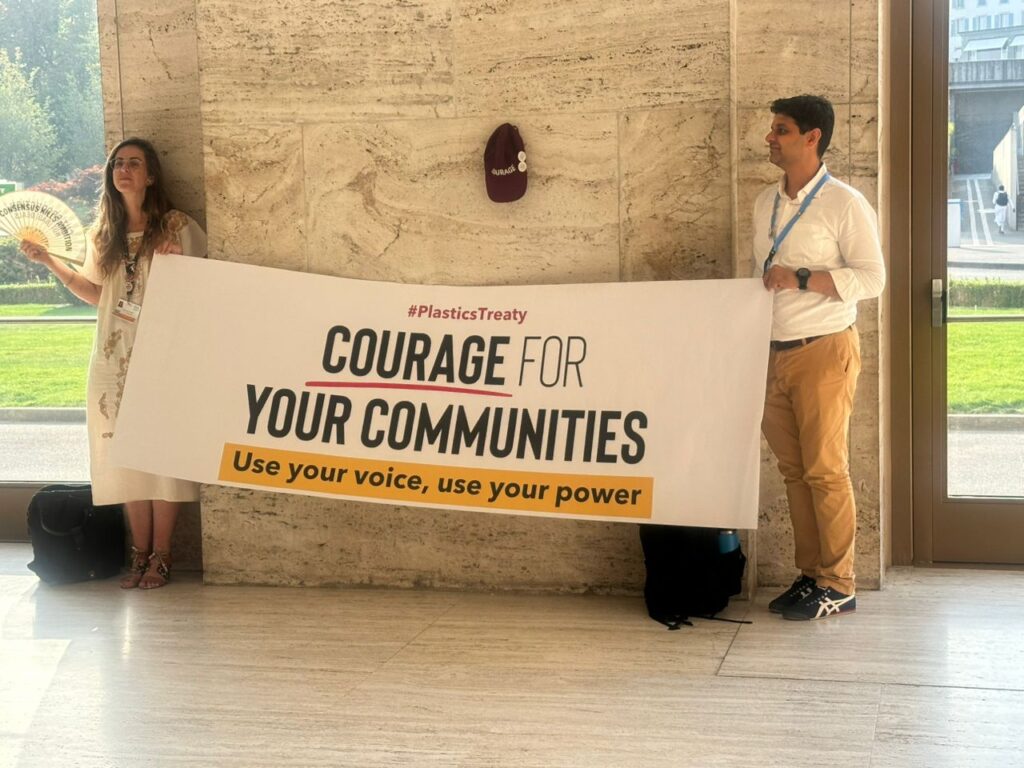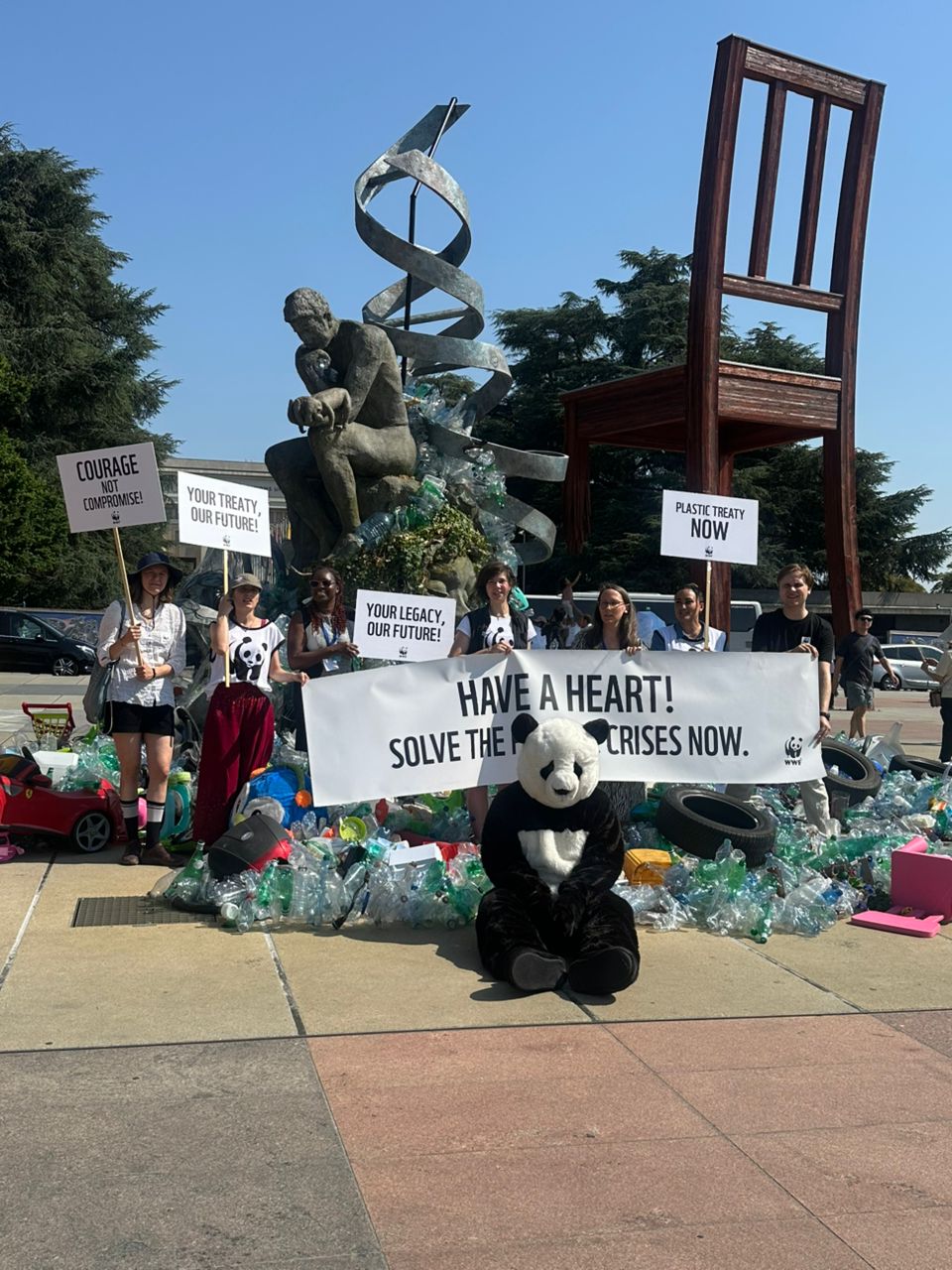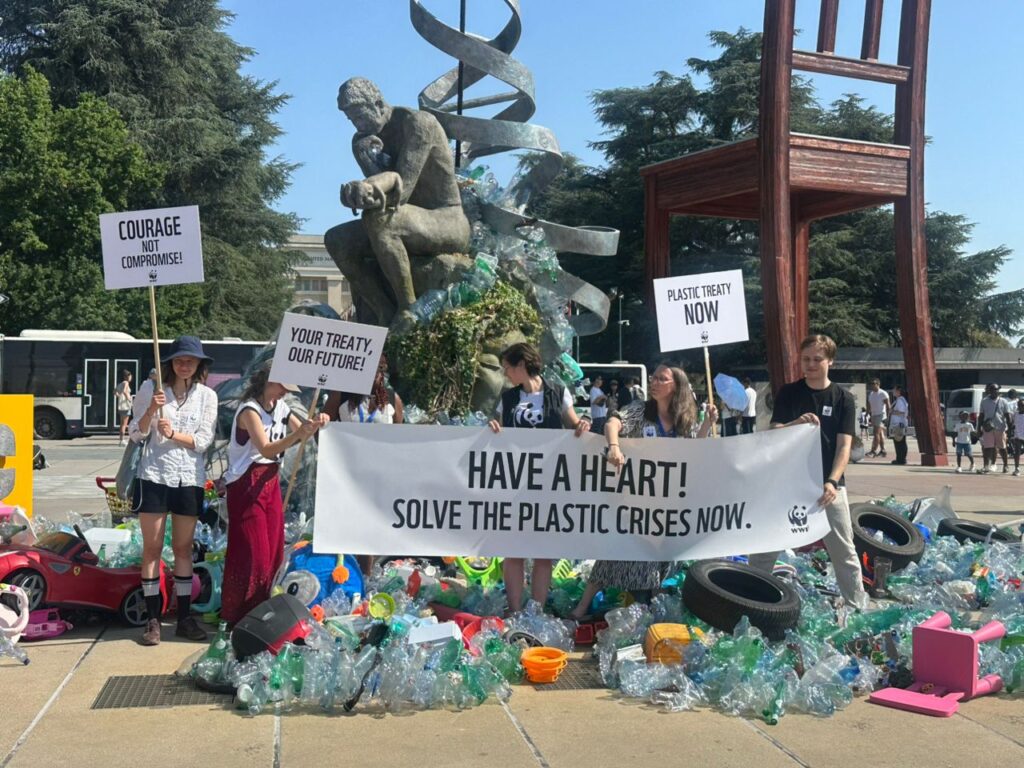By Habitat Media Reporter
Geneva, Switzerland. After ten days of intense negotiations, including late-night sessions, countries have left the United Nations Palais des Nations without delivering the long-awaited global treaty to curb plastic pollution.
The talks brought together over 2,600 participants, including 1,400 delegates from 183 member states, nearly 1,000 observers from more than 400 organizations, and 70 ministers and vice-ministers. Thirty other high-level officials also joined informal roundtables on the sidelines.
This was intended to be the final round of the Intergovernmental Negotiating Committee (INC) discussions, paving the way for the world’s first legally binding plastics treaty. Instead, the session ended in deadlock, echoing the collapse of the previous round in South Korea last year.

The meeting adjourned on Friday morning without agreement. The committee announced that negotiations will resume at a later date yet to be confirmed, leaving the United Nations Environment Assembly’s (UNEA) 2022 vision for a treaty — originally targeted for completion by the end of 2024 — unfulfilled.
A World Choking on Plastics
According to the UNEP report Drowning in Plastics: Marine Litter and Plastic Waste Vital Graphics, the world produces roughly 400 million tonnes of plastic each year, much of which ends up polluting oceans, rivers, soils, and even human bodies. The UN-led process is built around three main goals: reducing plastic production, boosting recycling, and promoting sustainable alternatives.
In Geneva, discussions began with a draft text prepared by the committee chair. However, deep divisions quickly emerged. Some countries pushed for strict caps on plastic production, while others prioritized waste management and recycling measures.
Calls for Renewed Commitment
Closing the session, UNEP Executive Director Inger Andersen acknowledged the disappointment but vowed to continue the fight against plastic pollution — “pollution that is in our groundwater, our soil, our rivers, our oceans, and yes, in our bodies.”
INC Chair Ambassador Luis Vayas Valdivieso urged delegates not to lose hope, saying that while the failure “may bring sadness and frustration,” it should instead inspire them to “regain our energy, renew our commitments, and unite our aspirations.”
“The day will come when the international community joins hands to protect our environment and safeguard the health of our people,” he said.
Jyoti Mathur-Filipp, Executive Secretary of the INC Secretariat, added that the session had clarified the challenges ahead, stressing that “progress must now be our obligation.”

Civil Society Frustration
Civil society groups expressed strong disappointment that, after three years of talks, no treaty has been agreed upon.
Karen Landmark, Managing Director of GRID-Arendal, called the treaty “already overdue” and warned that without binding mechanisms, results will not follow. She noted that some major plastic-producing countries refused to compromise, blocking progress on addressing plastics’ full life cycle, including production.
Ana Rocha, Global Plastics Policy Director at the Global Alliance for Incinerator Alternatives (GAIA), argued that no treaty is better than a weak one, saying, “A broken and non-transparent process will never deliver a just outcome.”
Hellen Kahaso Dena, Greenpeace Africa’s Pan-Africa Plastics Project Lead, warned that delays benefit polluters while communities suffer. “Our oceans choke, and our children breathe, drink, and eat microplastics,” she said, urging countries to “step up with courage” and cut plastic production.
Eskedar Awgichew Ergete of Eco-Justice Ethiopia cautioned that procedural agreement should not be mistaken for ambition, pointing out that consensus paralysis has stalled the most far-reaching proposals, many championed by the Global South.
What’s Next?
With no deal reached in Geneva, the path toward a global plastics treaty remains uncertain. Negotiations will resume, but environmental advocates warn that every delay worsens the crisis. Without strong, binding commitments, they caution, even a signed treaty may fail to address the escalating global plastic problem.


